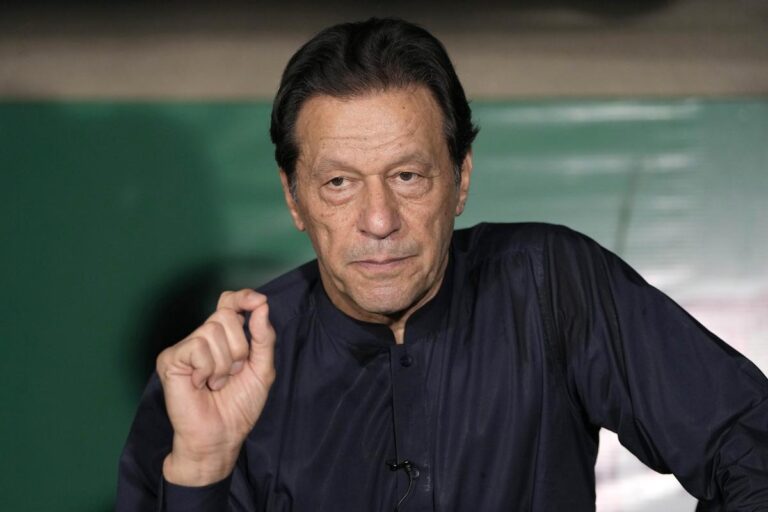Pakistan’s Election Commission is set to implement a Supreme Court order allocating seats to the party of jailed former prime minister Imran Khan, media reports said on Saturday, a decision that will allow Pakistan Tehreek-e-Insaf to become the largest party in parliament.
Last week, in a landmark 8-5 ruling, a 13-judge full bench of the Supreme Court ruled that 71-year-old Khan’s Pakistan Tehreek-e-Insaf (PTI) party was entitled to seats reserved for women and minorities in national and provincial assemblies.

The PTI won 23 seats reserved for women and minorities, boosting its tally from 86 to 109 seats and making it the largest party in parliament.
The Election Commission of Pakistan (ECP), in a statement on Friday, said the decision to implement the Supreme Court order was taken after the Election Commission held two meetings on Thursday and Friday to deliberate on the verdict in the reserved seats case. GeoNews report.

The statement said the election monitoring group’s legal team had been instructed to immediately “identify” any obstacles to the implementation of the ruling and seek advice from the Supreme Court.
“Furthermore, the committee strongly condemns and rejects the unjustified criticism levelled by political parties against the Chief Election Committee (CEC) and the lawmakers,” it said in a evasive comment to PTI.
“Demanding resignation [of CEC and members] “This is absurd,” the statement added.
The PTI has frequently reiterated its demand for the resignation of its party leader Khan, as well as Central Election Committee member Sikandar Sultan Raja and other ECP members.
On July 12, the PTI renewed its demands after the Supreme Court ruled that the party was entitled to seats reserved for women and minorities.
“The commission will not succumb to any pressure and will continue to work in accordance with the constitution and the law,” the ECP statement said.
The PTI-backed candidate ran and won the February 8 general election as an independent after being stripped of the party’s election symbol, but then joined the Sunni Ittehad Council (SIC), a political alliance of Pakistan’s Islamist and Barelvi religious parties, to form a coalition government of convenience.
The controversy over reserved seats pertained to the rejection of the ECP’s SIC petition seeking allotment of 70 reserved seats in the National Assembly and 156 reserved seats in the four provincial assemblies.
The ECP rejected the SIC’s petition on the pretext that the party did not contest elections. The party said it only grew stronger after independent candidates backed by the PTI joined it after winning the elections. The party’s appeal against the ECP ruling in the Peshawar High Court was also rejected in March, forcing it to move the Supreme Court.
This is a premium article available only to our subscribers. To read over 250 premium articles every month,
You’ve reached your limit for free articles. Support quality journalism.
You’ve reached your limit for free articles. Support quality journalism.
You have read {{data.cm.views}} from {{data.cm.maxViews}} Free articles.
This is the last free article.

